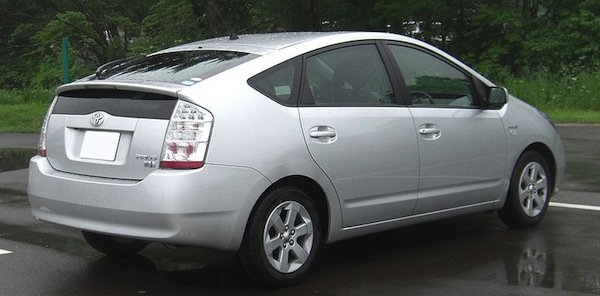The Prius is Ugly
When Toyota first rolled out the Prius, my reaction was the same as many others; Wow, that’s an ugly car! I assumed this hybrid metal snot rocket would see poor sales until the makers redesigned the car to be less space-pod-esque. Ten years and over 1 million sales later, I have come to the sad conclusion that the eco-movement has popularized ugly design. This is my plea for it to stop.
As I have complained before, I have a difficult time finding eco-conscious clothing for my husband because the options are either highly designed, exclusive and expensive, or something resembling a converted sack that you would only expect a person to wear after taking a vow of poverty or right before depositing daisy stems in a row of soldiers’ guns.
In the case of both the Prius, the tailored potato sack, and often eco-architecture, the unspoken meme seems to be that eco design should stand out. Stick out. Be noticeable to the point of being alien. The consumers of these designs are said to be participating in conspicuous conservation – purchasing recognizably eco options so that the world may know that they are conscientious consumers.
So is buying eco without being noticeable like the tree that falls in the woods with no one to hear it? Why doesn’t the Honda Civic Hybrid, which looks just like the standard, sell better than the Prius? Why can’t I purchase a men’s dress shirt made in organic or recycled cotton rather than regular cotton? Is it really so bad to blend?
And even better than blending, can’t we do it better rather than differently? Does Apple sell millions of products every year because it takes them back and recycles them when you want to upgrade? Or do they sell because they function better than the competition? Do Target shoppers put Method soaps in their bathrooms because they are biodegradable or because they look downright decorative?
The environmental movement, much like any other movement, is in need of converts in order to succeed. Well, how many more converts would the world see if eco-design were simply better functioning, better looking products, rather than oddly noticeable? We have the option to either stand on a soap box and shout our more-eco-than-thou credentials, or win over the world with beauty and simplicity. But this market can only be created if it is demanded. So the next time you buy, think of which way would you rather be swayed.
Photo Credit: TTTNIS

